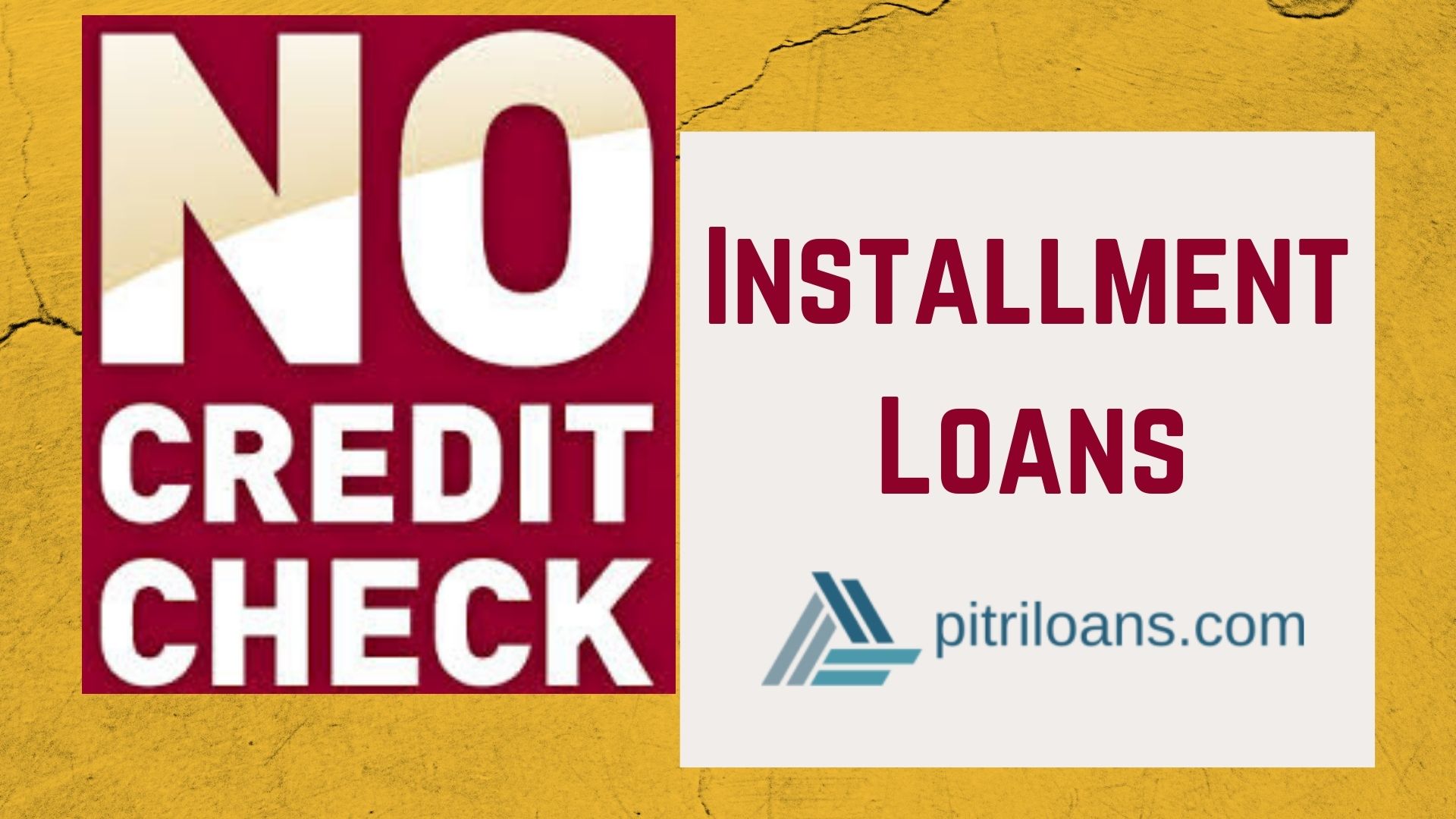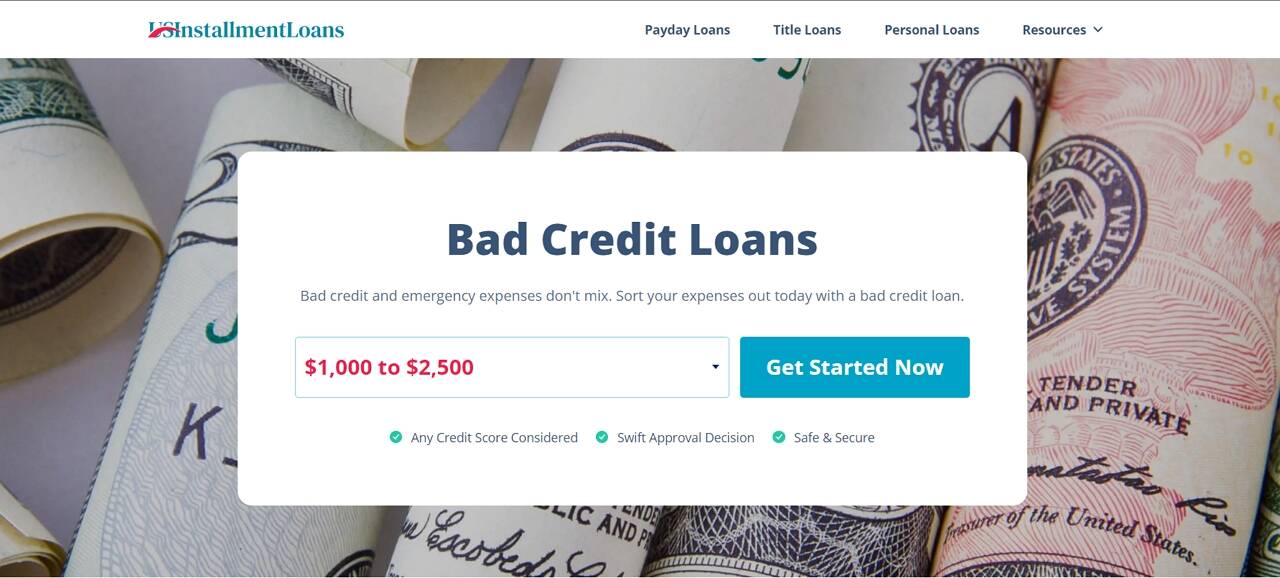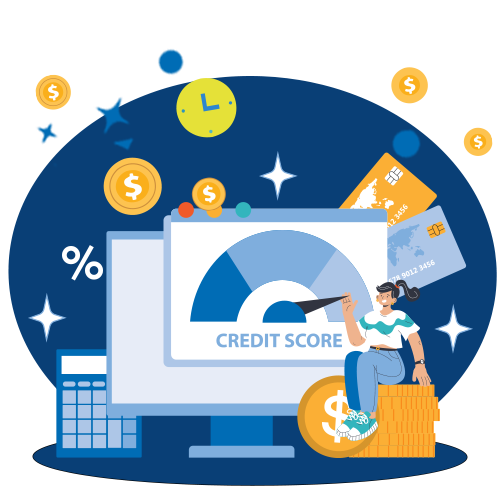Poor Credit Installment Loans No Credit Check

The promise of quick cash without a credit check is alluring, especially for individuals facing financial hardship. However, the reality of "poor credit installment loans no credit check" can be a complex and potentially perilous landscape for borrowers. These loans, often marketed as lifelines, carry significant risks that consumers must understand.
This article delves into the world of installment loans offered to individuals with poor or no credit, examining the details of how they work, their potential benefits, the inherent risks, and the regulatory environment surrounding them. We will explore the claims of "no credit check," uncover the true cost of borrowing, and provide resources for consumers to make informed decisions and seek alternatives when needed.
Understanding Installment Loans for Poor Credit
Installment loans are loans repaid over a fixed period through regular, scheduled payments. They differ from payday loans, which typically require a lump-sum repayment within a short timeframe. Installment loans can be secured, requiring collateral such as a car, or unsecured, meaning they are not backed by any asset.
For individuals with poor credit or a limited credit history, obtaining traditional loans from banks or credit unions can be challenging. This is where lenders offering "poor credit installment loans no credit check" enter the picture, promising access to funds without the scrutiny of a credit report.
The "No Credit Check" Claim: What Does it Really Mean?
The term "no credit check" is often misleading. While lenders may not pull a traditional credit report from major credit bureaus like Experian, Equifax, and TransUnion, they typically conduct some form of assessment.
This assessment may involve verifying income, employment, and banking information. Some lenders might utilize alternative credit data or specialized credit reporting agencies that focus on non-traditional credit information.
Alternative Credit Checks
These alternative checks can include reviewing bank account activity, utility bill payments, or rental history. The goal is to gauge the borrower's ability to repay the loan based on factors other than their traditional credit score.
While these checks might seem less intrusive, they still provide lenders with insights into a borrower's financial behavior. They are used to determine the level of risk associated with lending to the individual.
The True Cost of Borrowing
The primary concern with "poor credit installment loans no credit check" is the exorbitant interest rates and fees. These loans often carry Annual Percentage Rates (APRs) significantly higher than those of traditional loans.
APR, which includes interest and fees, can reach triple digits in some cases, making these loans incredibly expensive. The higher the APR, the more a borrower will ultimately pay back over the life of the loan.
Hidden Fees and Penalties
Beyond high interest rates, these loans may come with a variety of fees, including origination fees, late payment fees, and prepayment penalties. These fees can quickly add up and make the loan even more burdensome.
Prepayment penalties, in particular, can be problematic. They discourage borrowers from paying off the loan early, even if they have the means to do so, as they will be charged a fee for doing so.
The Risks of Poor Credit Installment Loans
Borrowing with high-interest, no-credit-check installment loans can create a cycle of debt. Borrowers who struggle to repay the initial loan may find themselves taking out additional loans to cover expenses, leading to a worsening financial situation.
Defaults on these loans can have serious consequences, including aggressive collection tactics, lawsuits, and damage to a borrower's creditworthiness. Though the loan was advertised as “no credit check”, defaulting can still impact your credit history.
Predatory Lending Concerns
Consumer advocacy groups often label these types of loans as predatory lending. Predatory lending refers to unfair or abusive lending practices that exploit vulnerable borrowers.
The combination of high interest rates, hidden fees, and aggressive marketing tactics can trap borrowers in a cycle of debt. This often disproportionately affects low-income individuals and communities.
Regulatory Landscape and Consumer Protection
The regulation of installment loans varies by state. Some states have strict usury laws that limit the interest rates lenders can charge, while others have more lenient regulations.
The Consumer Financial Protection Bureau (CFPB) plays a role in overseeing the lending industry and protecting consumers from unfair, deceptive, or abusive practices. However, the scope of its authority is sometimes subject to political debate and legal challenges.
State-Level Regulations
Several states have taken steps to regulate the installment loan industry, including setting rate caps and requiring lenders to provide clear disclosures to borrowers. These regulations aim to protect consumers from predatory lending practices.
Consumers should research the laws in their state and be aware of their rights when considering an installment loan. Contacting your state’s Attorney General can also provide helpful insights and potential assistance.
Alternatives to Poor Credit Installment Loans
Before resorting to high-interest installment loans, individuals should explore alternative options. These alternatives may offer more favorable terms and help borrowers avoid the debt trap.
Consider options such as credit counseling, secured credit cards, personal loans from credit unions, or borrowing from friends and family. Explore options like payday alternative loans (PALs) offered by some credit unions.
Non-Profit Resources
Numerous non-profit organizations offer financial assistance and advice to individuals struggling with debt. These organizations can provide budget counseling, debt management plans, and other resources to help borrowers regain control of their finances.
Seeking guidance from a reputable non-profit can be a valuable step towards addressing financial challenges. These services are often offered free of charge or at a low cost.
The Future of Poor Credit Lending
The market for poor credit installment loans is likely to evolve as technology advances and regulations change. Fintech companies are exploring new ways to assess credit risk and offer more affordable loan products.
Increased regulatory scrutiny and greater consumer awareness can also play a role in shaping the industry. The trend may shift towards more transparent and responsible lending practices.
Ultimately, borrowers must exercise caution and carefully evaluate their options before taking out any loan, especially one marketed as "no credit check." Understanding the terms, costs, and risks involved is crucial to making informed decisions and avoiding financial hardship.


















